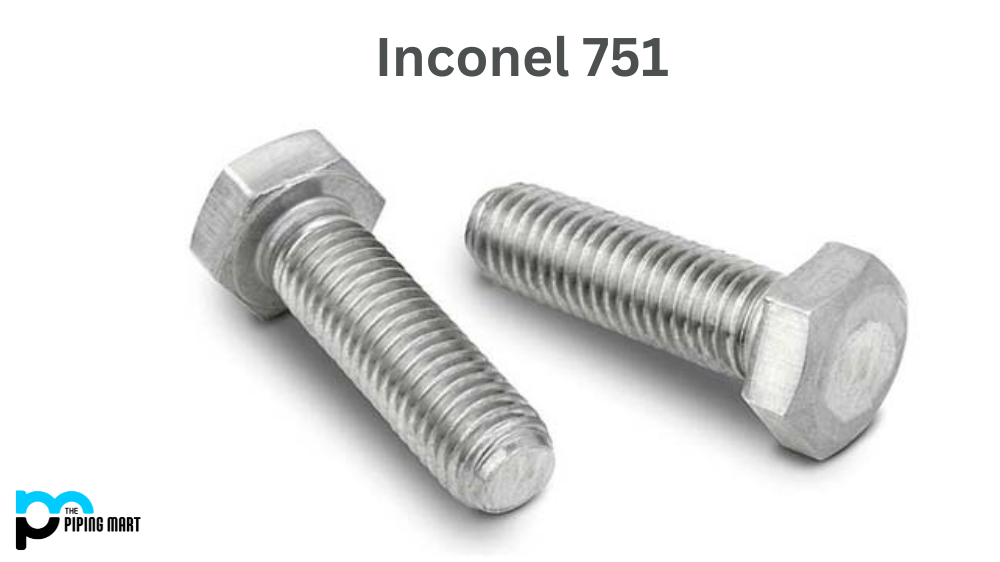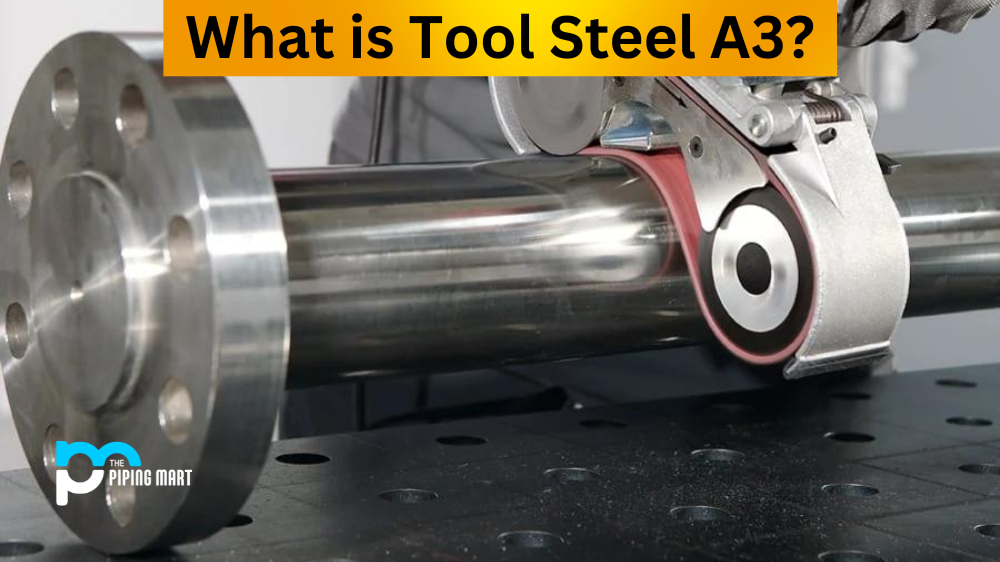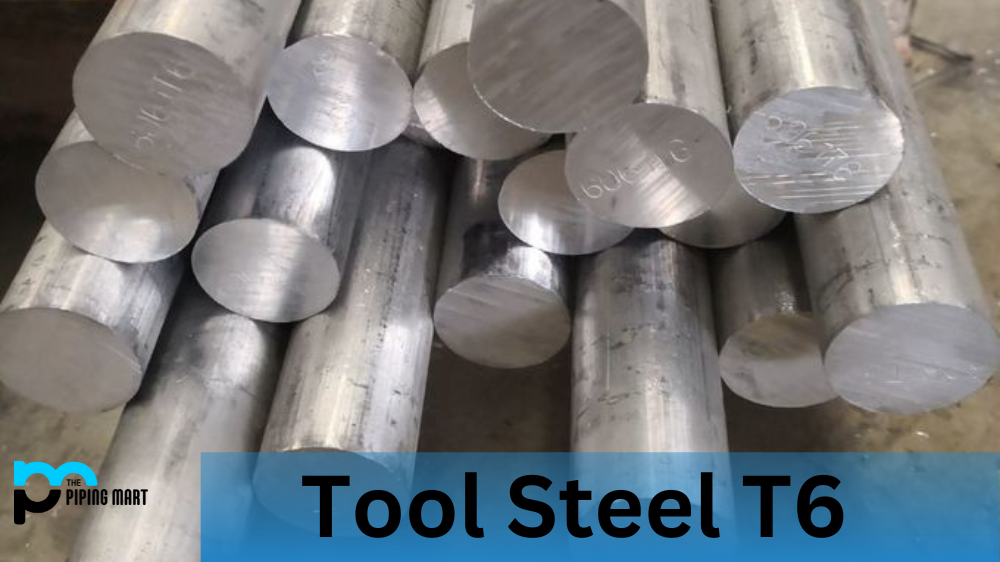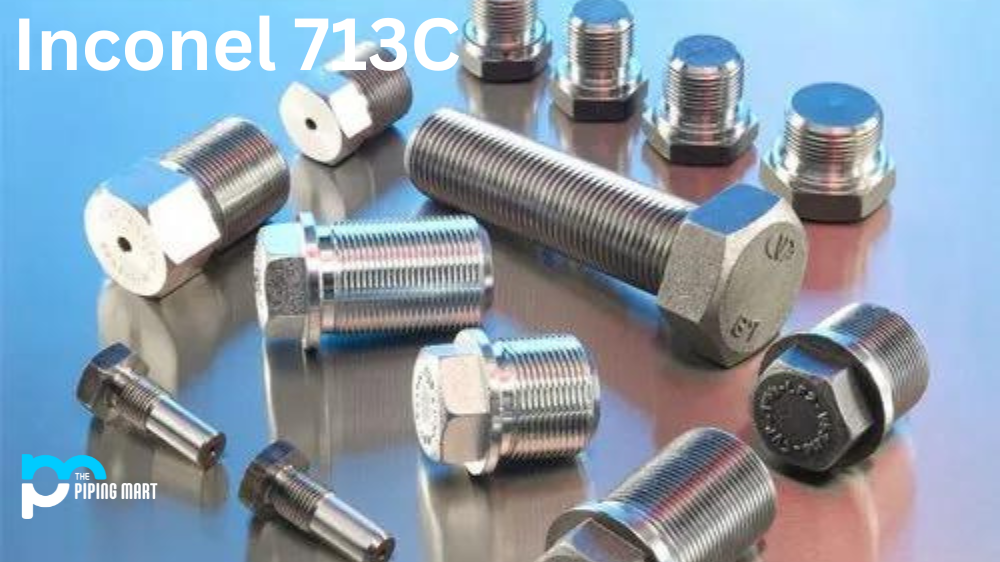UNS N07751 is a nickel-chromium-based alloy that is known for its exceptional strength and durability. It is used in a wide variety of industries, from aerospace engineering to medical technology. This blog post will discuss the composition, chemical properties, physical properties, uses, corrosion resistance, heat resistance, heat treatment, machining, and welding of Inconel 751.
Inconel 751 Composition
Super Alloy Inconel 751 is composed of nickel (Ni), chromium (Cr), iron (Fe), cobalt (Co), molybdenum (Mo) and aluminum (Al). It has excellent mechanical properties due to its combination of high tensile strength and low density. Due to its chromium content, the alloy also has good corrosion and oxidation resistance at high temperatures.
| Elements | Content (%) |
|---|---|
| Nickel, Ni | ≥ 70 |
| Chromium, Cr | 14-17 |
| Iron, Fe | 5-9 |
| Titanium, Ti | 2-2.60 |
| Manganese, Mn | ≤ 1 |
| Aluminum, Al | 0.90-1.50 |
| Niobium, Nb | 0.70-1.20 |
| Copper, Cu | ≤ 0.50 |
| Silicon, Si | ≤ 0.50 |
| Carbon, C | ≤ 0.10 |
| Sulfur, S | ≤ 0.010 |
Inconel 751 Chemical Properties
751 Inco is an important part of alloying elements, featuring a unique set of chemical properties that make it an essential part of any industrial portfolio. Its success in engineering comes from its ability to resist corrosion and oxidation even at temperatures that range up to 1650°F (900°C). It’s also notable for its elevated strength — especially under high temperature conditions — its good creep-rupture strength, and its useful formability in spite of giving off a crystalline structure familiar in many alloys. The added bonus of Inconel 751’s low magnetic permeability makes it ideal for machinery and piping with strong electromagnetic fields present. This combination of physical traits gives Inconel 751 great promise in nuclear and aerospace technology and industrial settings.
Inconel 751 Mechanical Properties
UNS N07751 is a nickel-based superalloy known for its impressive mechanical properties. Its great strength and good fracture toughness makes it an ideal choice for many extreme conditions, such as high temperature applications and hostile environments. It can also be used to parts with high fatigue resistances, making it a popular choice in the aerospace industry. While these mechanical properties make Inconel 751 suitable for many situations, it is important to consider the alloy’s low ductility before applying it in certain situations.
| Properties | Metric | Imperial |
|---|---|---|
| Tensile Strength (precipitation hardened, value at room temperature) | 1275 MPa | 184900 psi |
| Yield strength (at strain 200%, precipitation hardened, value at room temperature) | 875 MPa | 127000 psi |
| Elongation at break (precipitation hardened) | 25% | 25% |
Inconel 751 Physical Properties
The most important physical property of Inconel 751 is its high melting point – it can withstand temperatures up to 2200°F without losing structural integrity. It also has good electrical conductivity and thermal conductivity. The alloy has a low coefficient of thermal expansion which makes it ideal for use in applications where temperature changes are a factor.
| Properties | Metric | Imperial |
|---|---|---|
| Density | 8.22 g/cm³ | 0.297 lb/in³ |
| Melting point | 1413°C | 2575°F |
Inconel 751 Thermal Properties
| Properties | Metric | Imperial |
|---|---|---|
| Thermal expansion co-efficient (at 20-100°C/68-212°F) | 12.6 µm/m°C | 7 µin/in°F |
| Thermal conductivity | 12 W/mK | 83.3 BTU in/hr.ft².°F |
Inconel 751 Equivalent
- DIN 2.4694.
Inconel 751 Uses
Inconel 751 is used in many different industries, such as aerospace engineering, power generation systems, chemical processing plants and medical technology. Its superior strength and corrosion resistance make it an ideal material for parts exposed to extreme temperatures or corrosive environments. It can be used for turbine blades, exhaust systems, valve components and fuel system components. Additionally, Inconel 751 can be used in nuclear reactors as it is resistant to neutron radiation damage.
Corrosion Resistance
Inconel 751 has excellent corrosion resistance thanks to its chromium content. The alloy can withstand acidic and alkaline environments without corroding or oxidizing. It also does not suffer from stress corrosion cracking when exposed to water or other fluids like some other alloys. This makes it an ideal choice for applications that involve submerged components or frequent exposure to water or other liquids.
Heat Resistance
Inconel 751 exhibits excellent heat resistance due to its high melting point and ability to resist oxidation at high temperatures. Its low coefficient of thermal expansion also helps maintain stability when exposed to rapid temperature changes over long periods of time. This makes it an ideal material for use in jet engines or exhaust systems where extreme temperatures are common or expected over time.
Heat Treatment
Inconel 751 can be heat treated using various processes depending on the desired outcome and application requirements. These processes include solution annealing; age hardening; stress relief annealing; homogenization; tempering; normalizing; quenching; precipitation hardening; austempering; full annealing; normalizing plus tempering; subcritical annealing; double aging; triple aging etc..
Machining
Inconel 751 can be machined using traditional methods such as turning , milling , drilling , tapping etc . However, due to its high hardness , cutting tools must be made from carbide grade materials with sharp edges . High speeds should be avoided during machining operations.
Welding
Inconel 751 can be welded using several techniques such as gas tungsten arc welding (GTAW), shielded metal arc welding (SMAW), gas metal arc welding (GMAW) etc . Care should be taken when selecting the appropriate shielding gases for welding operations, as these may affect the quality of the welded joint. Specialized filler wires should also be used for best results.
Conclusion
In conclusion, Inconel 751 is a versatile nickel-chromium based alloy with exceptional strength, durability, corrosion resistance and heat resistance. It can be used in a variety of industries, such as aerospace engineering, power generation systems, chemical processing plants etc. The alloy’s composition gives it excellent mechanical properties, while its low coefficient of thermal expansion allows stable performance under rapid temperature changes over long periods of time . Furthermore , specialized processes such as machining & welding should be employed while working with this alloy in order ensure best results & quality output products . With this blog post we hope you have learned more about why you might want to consider using Inconel 751 in your application!

Meet Bhavesh, a seasoned blogger with a wealth of knowledge and experience. From metal products manufacturing to retail, Bhavesh has a diverse background in various industries and is dedicated to sharing his insights and expertise with readers.




